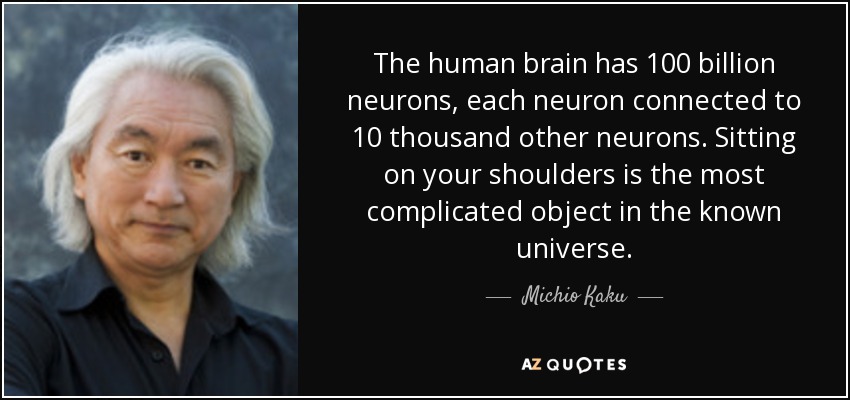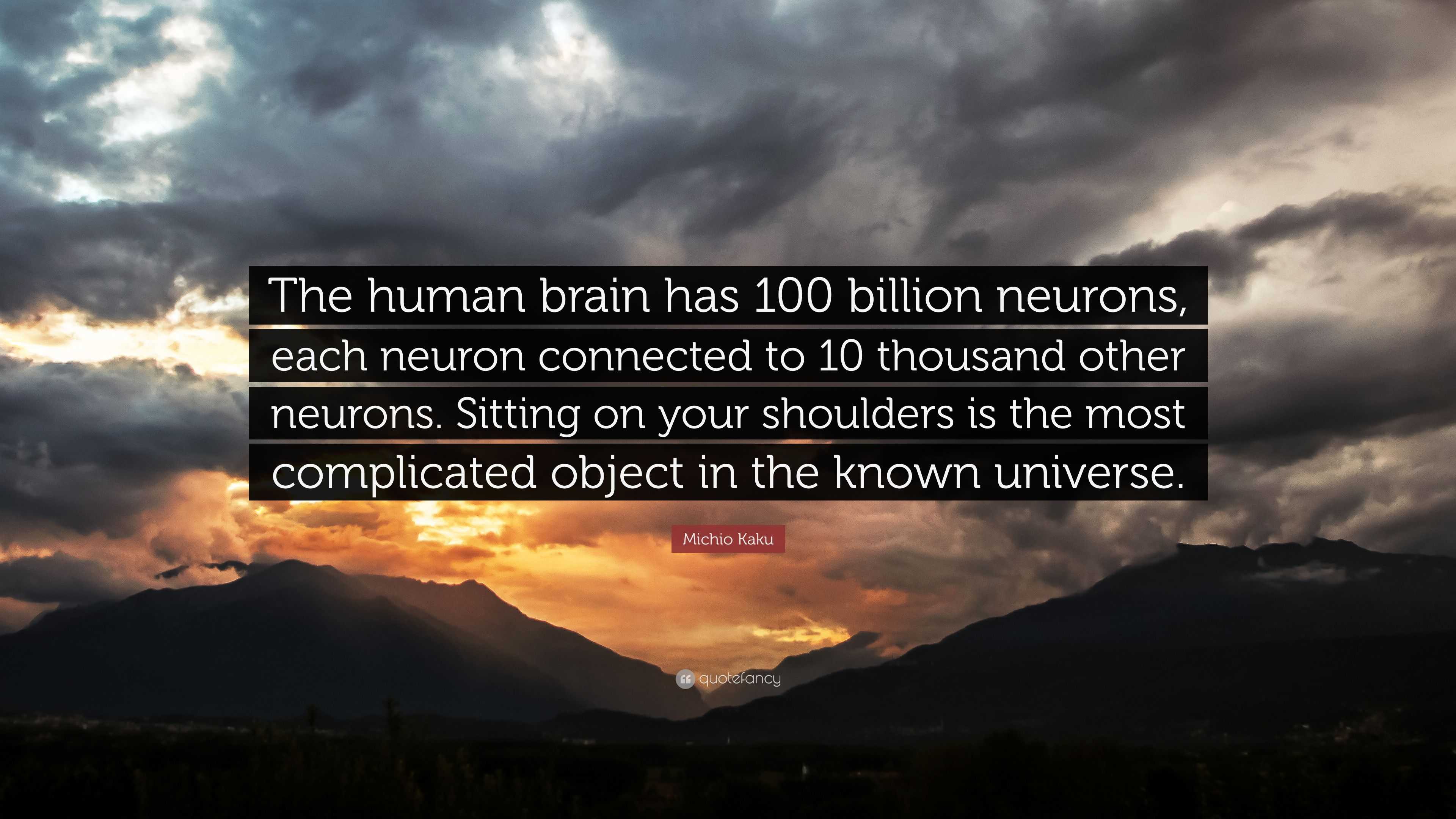The human brain has about 100 000 000 000 100 billion neurons

The Human Brain: A Marvel of 100 Billion Neurons

Our brains are truly extraordinary organs, capable of remarkable feats that continue to baffle scientists and researchers. One of the most fascinating aspects of the human brain is its incredible complexity, consisting of approximately 100 billion neurons.
To put this astonishing number into perspective, imagine a crowded city with 100 billion people, each person representing a single neuron. These neurons are the building blocks of our brains, responsible for carrying out complex computations, transmitting information, and allowing us to perceive, think, and react to the world around us.

Each of these neurons is intricately connected to thousands upon thousands of other neurons, forming an intricate web of communication. Just like a vast network of roads connecting various destinations, these neural connections allow information to flow and be processed throughout the brain.
The sheer number of neurons in the human brain is truly mind-boggling, with each neuron potentially establishing connections with up to 10,000 other neurons. This high degree of connectivity enables the brain to process massive amounts of information simultaneously, making it an unparalleled processing machine.
These 100 billion neurons are scattered across different regions of the brain, each serving a specific function. Some areas are responsible for processing sensory information, allowing us to see, hear, and touch the world. Others govern our emotions, decision-making, and memory formation. The human brain’s complexity is a testament to its adaptability, allowing us to learn, reason, and evolve.
Although the exact number of neurons in the human brain is difficult to measure with absolute precision, researchers have estimated this astounding figure through microscopic examinations and advanced imaging techniques. These technologies have given us a glimpse into the intricate architecture of the brain, unraveling its mysteries layer by layer.
Understanding the immense number of neurons within the human brain opens up exciting possibilities for scientific and medical advancements. Researchers hope to uncover the mysteries of conditions such as Alzheimer’s, Parkinson’s, and other neurological disorders by studying the intricate interactions between neurons.
In conclusion, the human brain’s composition of 100 billion neurons is a testament to its incredible complexity. Each neuron, intricately connected to thousands of others, forms the foundation of our thoughts, emotions, and actions. Exploring the marvels of the human brain and unraveling its mysteries is an ongoing journey that promises to revolutionize our understanding of the mind.
Tags
Share
Related Posts
Quick Links
Legal Stuff

